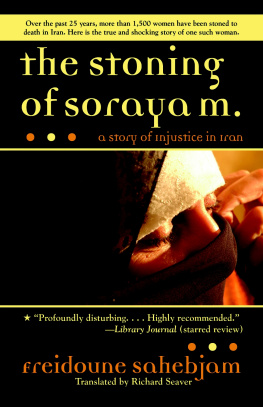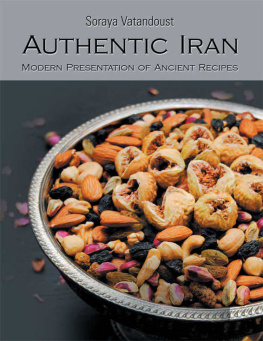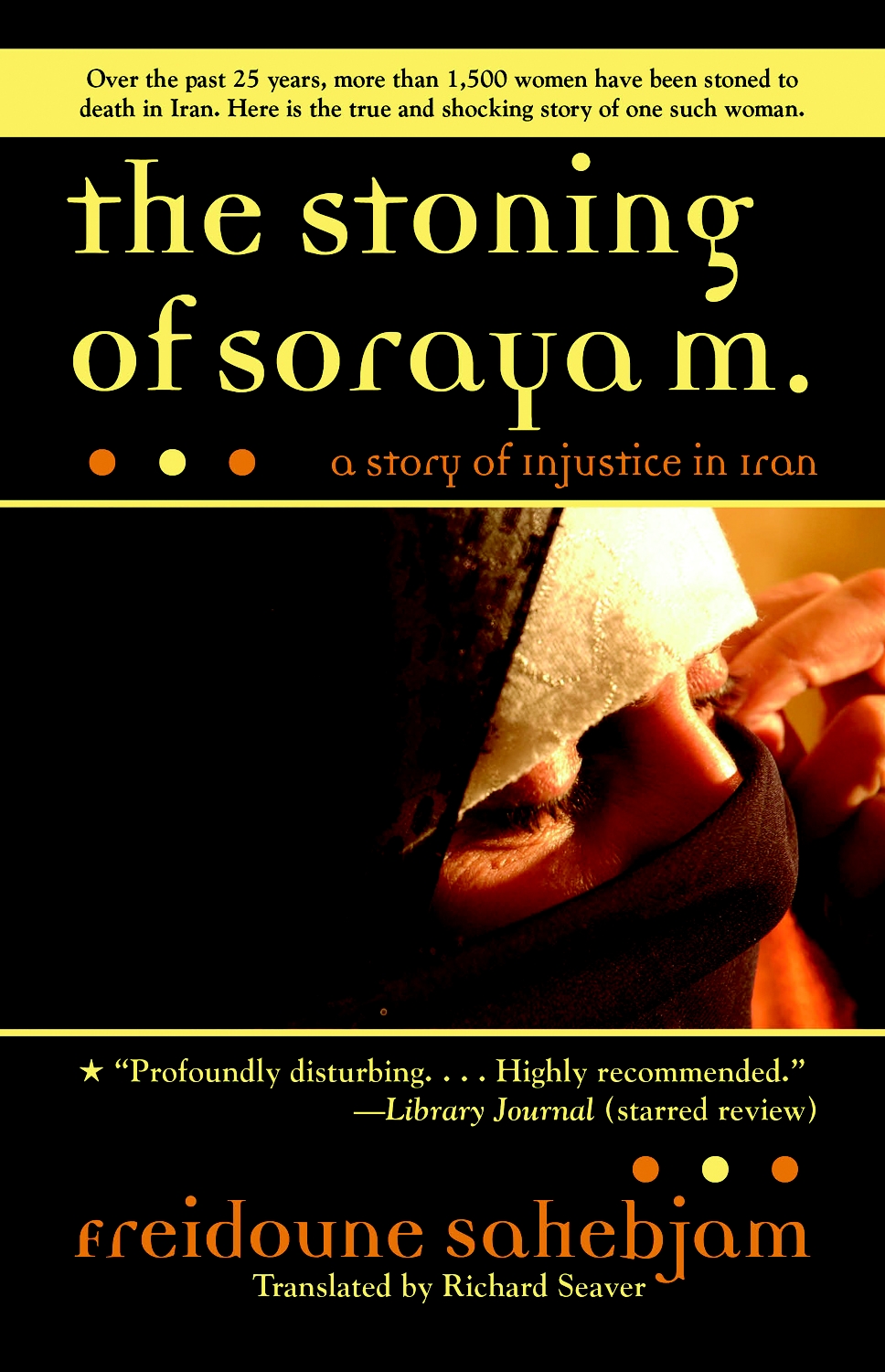Dont act like the hypocrite who thinks he can conceal his wiles by loudly quoting the Koran.
Hafez
I N SOUTHWESTERN IRAN, roughly thirty-five miles from the city of Kerman, lies the village of Kupayeh whose name means at the foot of the mountain. Clinging to the base of austere mountains, the village is a little cluster of brick houses with thatched roofs. It is flanked on one side by an icy, rushing stream and, on the other, by a forest of beech, birch, and olive trees. Beyond stretch fields and meadows, dotted with a few grazing cows and sheep.
Kupayeh is not easily accessible. To get there, you have to take the only road, which is not blacktop; a road that zigzags upward, making several dozen hairpin turns that are as dusty as they are dangerous. Once a week, on market day, a battered old bus swings and sways up the road and arrives at Kupayeh in the morning. It brings a number of passengers, most of them peasants, whose merchandise is piled on top of the bus. They come to sell these wares or exchange them for other goods, which they will take back down to the valley and try to sell there.
It was in the village of Kupayeh that Soraya was born in 1951.
She had come into the world on the Shahs wedding day and had been named after his bride, Princess Soraya. The whole country was celebrating the happy occasion.
Morteza Ramazani, who had married rather late in life, was duly proud of this gift from God. She will be the most beautiful girl in the village, he announced. And I shall give her in marriage to the best young man in town. He will have to prove himself worthy.
Shokat, the childs mother, was a pious woman of fragile health. She had had her first child when she was thirteen and subsequently gave birth to four more children, two of whom died in infancy. After Soraya was born, a doctor came from Kerman to examine Shokat. He informed Morteza in no uncertain terms that another pregnancy might well prove fatal.
Whereupon Morteza took a sigheh, as the law stipulated, a second wife, who moved into the house and bore him four more children.
All lived together in harmony, but Shokat remained the preferred woman of the house. The concubine was assigned all the lowliest tasks and chores, which she carried out for many years without the slightest complaint. When Shokats illness paralyzed her, the two eldest sons and Soraya assumed responsibility for running the household. All three also had the advantage of knowing how to read and write, so they could read the Koran and the local posters to other members of the family. They had learned these skills at the village school. The village school did not open every day, for the schoolmaster was also the town potter, and when he had to oversee the firing of his pots, the children were free to play in the fields. It was on one of these school holidays that Soraya had her first encounter with Ghorban-Ali. She was five years old at the time, and he was a boy of twelve.
Ghorban-Ali had decided to make a kite. He had spent hours on end gluing together bits of wood and pieces of paper of many colors, but try as he might, the kite just wouldnt fly. Either the wood would be too heavy, or the paper would rip under the force of the wind, or the glue wouldnt stick, or the string would break. Eventually, Ghorban-Ali got the kite to fly. The great moment had finally arrived. Twenty or so children, ranging in age from five to fifteen, gathered in the meadow. They all held their breath, and the kite rose slowly and majestically heavenward. It was an occasion of great festivity. One by one, the children were each given the chance to fly the kite themselves. Now it was Sorayas turn. Shyly, she ran across the meadow, the kite at the end of the long string. As she watched the crowd that was cheering her on, she stumbled on a stone and fell down. She let go of the kite, which soared high into the sky, then fell back toward the ground. When Soraya, whose knee was scratched and bleeding, painfully pulled herself to her feet, her little comrades had disappeared....
She ran all the way home and hid there.
Her mother bandaged her knee, and before long she went back outdoors. She had taken only a few steps when the children, all out of breath, began to scold and upbraid her: Come and see what youve done.... Youre a dumbbell! We never want you to play with us again!
The child had no idea how to defend herself.
Come on, Ghorban-Ali shouted at her, come over here and see where you made the kite land.
He grabbed the little girl by the wrist and dragged her toward the lower end of the village, the other children all following in their wake. The kite was perched atop a beech tree, so high up there was no way to get it down. The biggest ladder in Kupayeh was no higher than thirteen feet, and none of the poles they used to beat the trees when they picked nuts was long enough, either. It was impossible to climb the tree; its branches were much too frail to sustain the weight of even an adolescent. As for hugging and shaking the tree, how could they even consider that as a possible solution when its trunk was far too big around for a child to get a good grasp.
Youll have to build us another kite. And until you do, you cant play with us any more.
Thus did Ghorban-Ali proclaim his decision. It was seconded by all the other children, who threw handfuls of sand and gravel at Soraya. In response, she scrunched down her head as far as she could, and waited. Although she was sad and upset, she didnt want to cry in front of her friends. She repressed a sob and closed her eyes tight. Then, when she could no longer hear any sound around her, she raised her head and saw that only her cousin Massoumeh had remained behind, sitting beside her.
Dont worry, Massoumeh said. Ill help you make another one. Wait and see, itll be even more beautiful than that one.
I hate Ghorban-Ali, I hate him, I hate him. I never want to see him again as long as I live. After this incident, Sorayas life was uneventful for several years.
When she was ten, her parents took her down to the city to complete her education by becoming an apprentice at the home of the arbab, the wealthy landowner.
The children who apprenticed there were given food and lodging, but they received no salary. They worked fifteen hours a day and slept little, since even at night they were often awakened on one pretext or another.
The little girl did not like the arbab, this fat, unkempt, and arrogant man who frequently beat her. But what could you do when you were dealing with a man as powerful as he was, a man who always kept a gun in his car? She bowed her head, asked his forgiveness, and kissed the masters hand. For three years she had to endure all the humiliations and vexations of an angry man and put up with his advances as soon as his wife was away. Each time it was the same. He summoned the girl to his room, undressed her slowly, said things to her she didnt understand, and, when she was naked, he kissed her budding breasts as he masturbated. The child understood nothing, felt nothing, said nothing. As thanks, he would offer her some pistachios or dates, and at dawn she was back at work.
For three years she did not see her parents, but sometimes one of her brothers would come to pay her a visit. She was allowed to spend a quarter of an hour with him in the garden.
It was imperative for Soraya to remain a virgin until she was married, and the fat man knew it; otherwise the scandal would be so great that the arbab would have to indemnify the childs father. At that time, long before the revolution, the authorities were uncompromising when it came to any kind of sexual debauchery.














